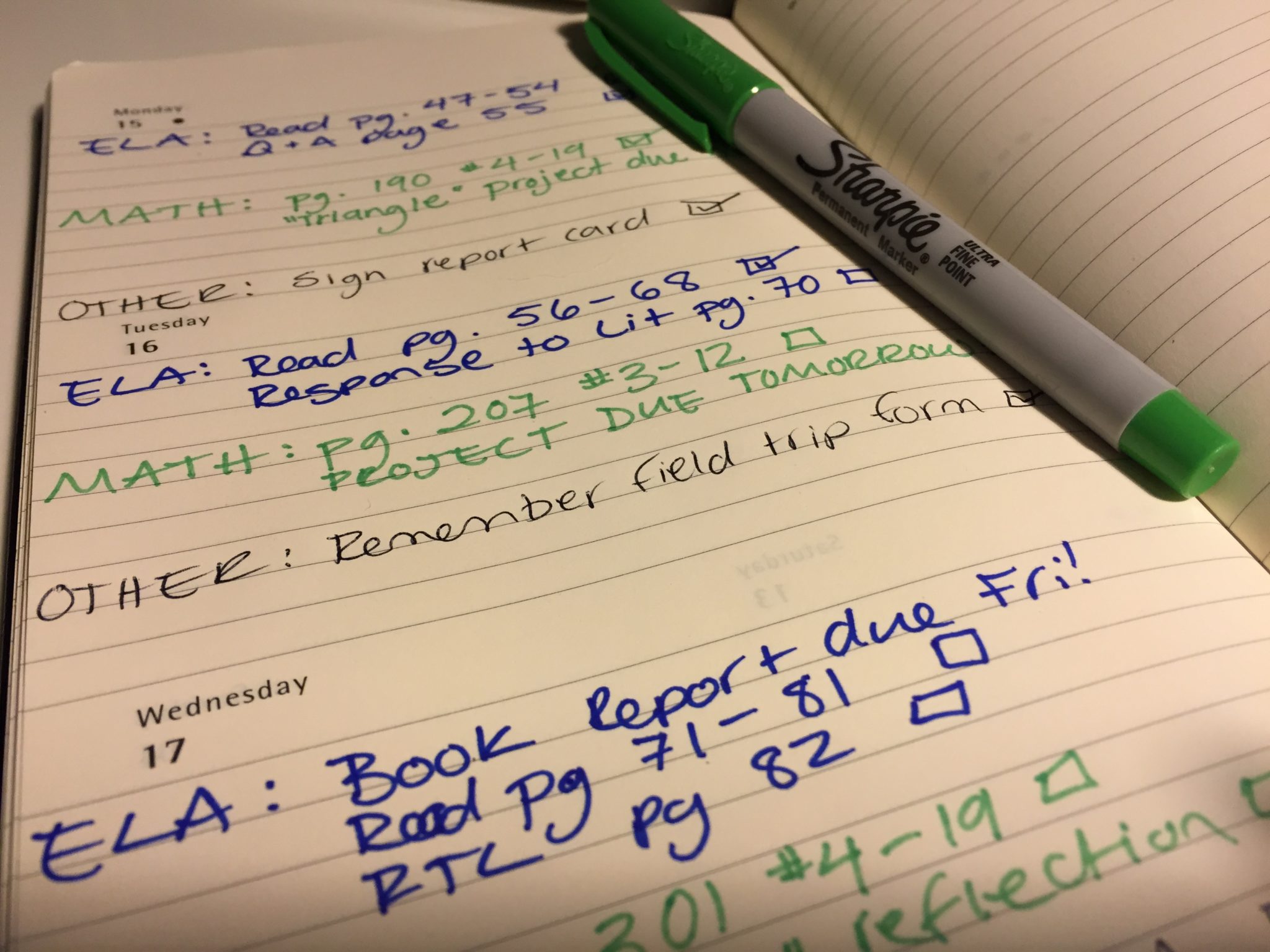
How to Prepare for the Middle School Transition
by Logan Juve Janicula, Integrated Special Education Coach
As temperatures rise and spring birds make their way back to our windowsill, many families will begin to think about the next step in their student’s educational trajectory: middle school. While we know this change can bring with it anxiety, it’s also an exciting time to exercise the power of school choice in ensuring all Rocketeers continue to thrive. We connected with Manny Barrera, Director of Academics at Alpha Public Schools, to answer some of your questions about the next step.
LJ: What are some common misconceptions about middle school, and how can we clear the air?
MB: Often times when parents think about the transition from elementary to middle school they think about their children growing up and having to “let go” of their babies. In reality, middle school is where parent involvement is the most crucial. Being involved and aware of what is going on in your child’s middle school life will ensure that they are traveling the path you both envision for their future.
Another myth is that students in middle school are on their own and are expected to figure it all out because they are growing up. Although there is more freedom and choice, most middle schools offer more support to incoming 6th graders through advisory teachers, open houses, school tours and student shadowing/mentoring to help with the immediate transition.
LJ: What are some basic differences, socially and/or academically, that students and families can expect during their transition to middle school? What are some of the expected changes?
MB: The transition from elementary to middle school is filled with multiple changes. To support the developmental changes in students, schools allow more independence and implement expectations that match the maturity level of the age group. Schools will provide students with choices in electives, freedom to transition between classes, and opportunities to explore extra-curricular interests. With these new freedoms, students are given more responsibility. Students may move from 1-2 teachers to 5-6 teachers. The independent practice and rigor of lessons will also increase. The organization students will need to have increases drastically as well. Socially, middle school can be a confusing place. There are students at all maturity levels—some loving Pokemon and others listening to rap lyrics. Friend groups change and students try everything to fit in with others.
LJ: When considering the increased workload (both in class and in homework) in middle school, what can families and students begin doing now to prepare for this change?
MB: Students and parents can begin working on organization skills and time management. Creating routines in both paper trails and after school time will help students manage the workload they are given. Using an agenda or organizer to record assignments can give students a way to “check off” completed homework. Creating family routines for completing homework will also help students transition to middle school. Families must do what works for them, but having quiet places to work and specific times for homework completion will set middle schoolers up for success in their studies. When started early, these skills will stick with students and serve them well in middle school, high school, college and beyond.
It is also important to keep in communication with your child’s teacher. If the school provides an organization system (such as homework folders and school agendas) make sure to be aware of them and help your child stay organized. Like any skill, organization must be taught. Supporting your child here is key.

LJ: How can families encourage study skills in elementary students that will transfer to middle school?
Families can encourage study skills in many different ways. One simple way is to just ask, “What did you learn today? What did you do in school?” Having students summarize their learning and explain it in a different way allows them to revisit and recall basic daily objectives. Having the daily conversation will help give parents an insight into their student’s day and get students used to the question so that it is easy to answer as time goes on. Being involved in homework and having students explain how to complete it to someone else also allows them to study the information in a different way. In addition, speaking to the teacher about strategies you can try at home could help encourage study skills at home.
LJ: What are some of the most positive aspects of middle school in your opinion? What do kids making the transition to middle school have to look forward to?
MB: Middle school is an exciting time for students. They have great opportunities coming their way to explore interests and try new things. Extra-curricular choices give students the opportunity to delve into the arts, sports, different language, and anything else offered by the school. Students can begin to explore their interests for future careers and different types of high school options. As students progress in middle school they will have the opportunity to join specific clubs, such as student government, Science Club, Chess Club, etc., which makes going to school even more exciting. Middle school is also a great place to meet new people and build great friendships. A lot happens during middle school, and the best part is that there are students who are going through the same thing and will share that experience with you.
Check out some great San Jose charter middle school options, and don’t hesitate to reach out to your teacher with questions!
Share your middle school transition questions and tips ➟ @RocketshipEd
Logan came to Rocketship in 2013 after spending three years in a neighboring district in east San Jose. She learned about Rocketship’s inspired full inclusion model and knew within her first days as a Rocketeer that she was in the right place to influence change for all students. Logan is most inspired by her students who seem to inherently understand that learning can be messy and difficult, but who are willing to jump in headfirst anyway. Logan lives with her husband and her dog in sunny Santa Cruz and spends her extra time playing on the beaches or hiking underneath the redwood trees in her backyard.
Follow Logan on Twitter: @loganjuve
Published on March 7, 2016
Read more stories about: Parent Experience.

